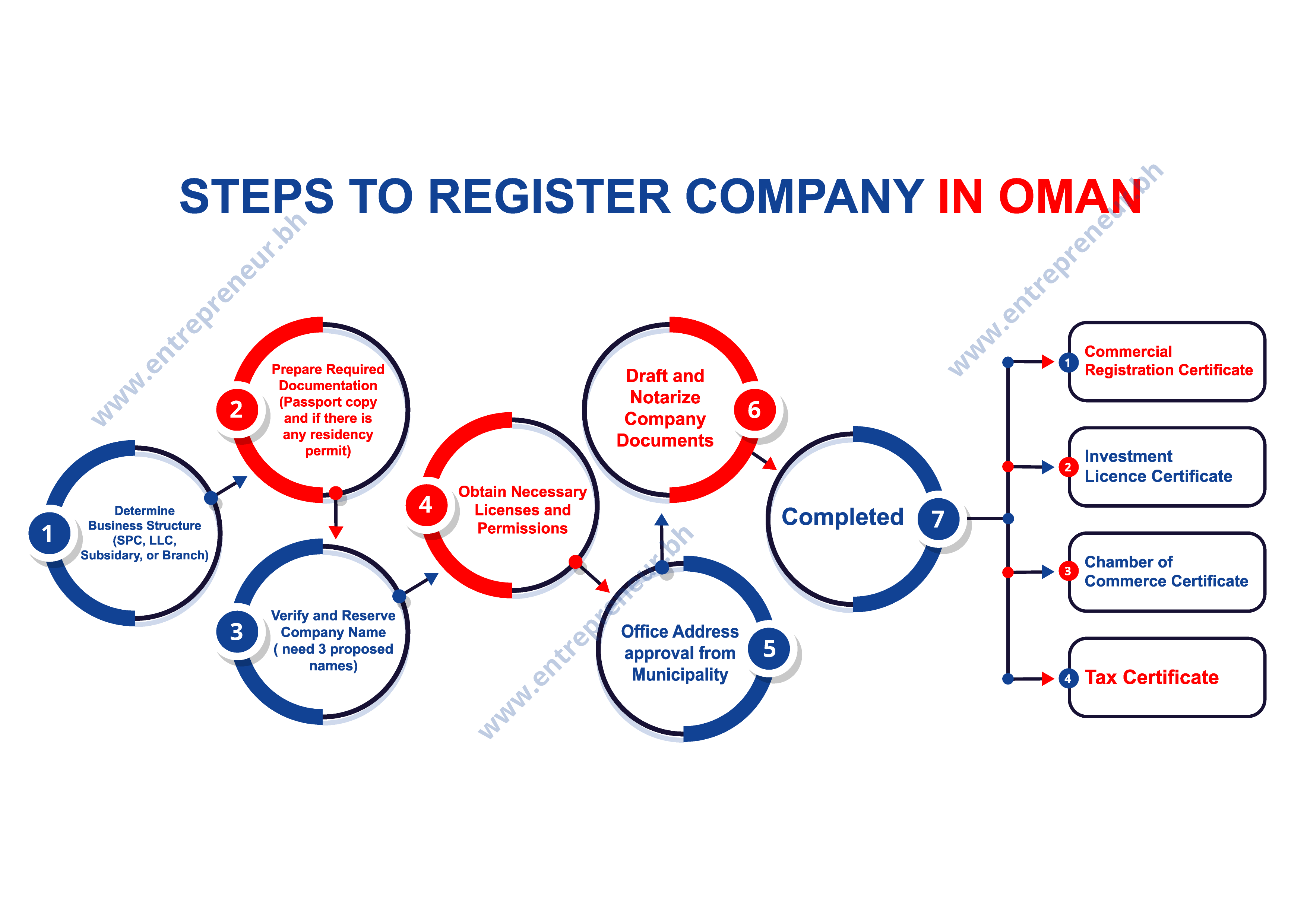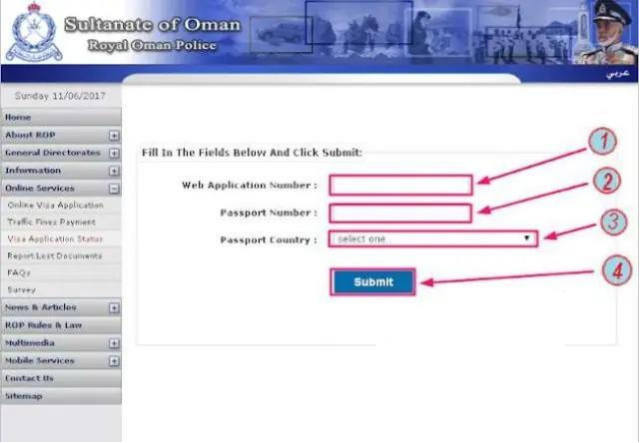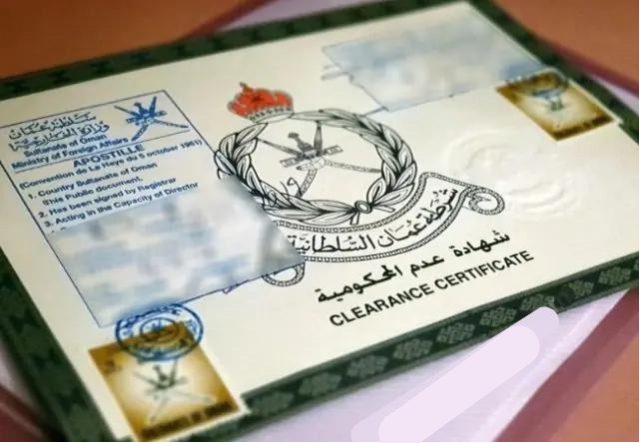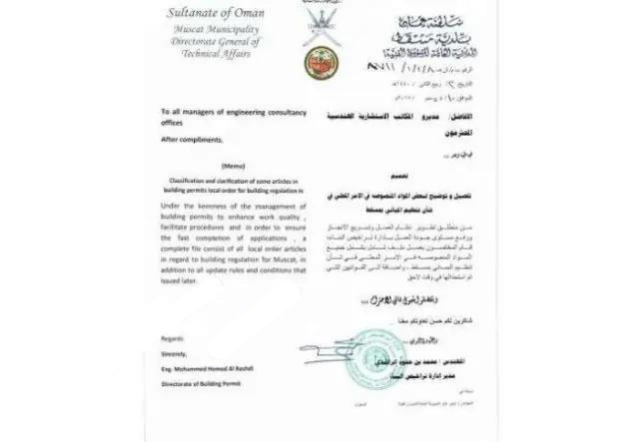- EBC Tower, Manama, Bahrain.
- +973 3366 4381
- Sun- Thur : 8:00 am - 17:00 pm
There are 7 Steps to Register Company in Oman.
The Sultanate of Oman provides a favorable environment for businesses, and the process can be quite straightforward with the right guidance.

Determining the business structure is a crucial initial step when setting up a company in Oman. The choice of structure depends on various factors including ownership, liability, operational control, and the nature of the business. Here are the main business structures to consider:
Establishing an LLC is the most common choice for foreign investors due to its flexibility and relatively straightforward setup process. This structure allows for 100% foreign ownership in most sectors, offering shareholders limited liability, protecting their personal assets. LLCs require a minimum capital investment, varying depending on the nature of the business. Management is typically overseen by directors appointed by shareholders, providing operational control. However, LLCs are subject to corporate tax in Oman.
SAOGs are suitable for larger enterprises, requiring a minimum of two shareholders. They offer limited liability to shareholders, similar to LLCs, but with higher capital requirements. A board of directors, elected by shareholders, manages SAOGs, providing a more structured governance framework. This structure is also subject to corporate tax in Oman.
Establishing a branch office involves setting up an extension of a foreign company in Oman. The parent company retains full ownership and control, but it bears liability for the branch’s activities. While there’s no specific capital requirement, the branch must demonstrate financial solvency. The management of a branch office is overseen by the parent company, and it’s typically subject to corporate tax in Oman.
A representative office serves primarily for promotional and marketing activities, not engaging in profit-generating operations. It offers limited liability and doesn’t require a minimum capital investment. The management of a representative office is overseen by the parent company and is generally not subject to corporate tax due to its non-trading nature.
Choosing the appropriate structure involves considering ownership control, liability protection, required capital, nature of business activities, and compliance with legal obligations. Consulting legal and business experts familiar with Oman’s regulations is advisable to ensure you select the structure best suited to your business goals.
Preparing the necessary documentation is a crucial step in setting up a company in Oman. Here’s a detailed breakdown of the documents required:
Passport-Sized Photos: Some applications might require recent passport-sized photos of shareholders or directors.
Accuracy and Completeness: Ensuring all documents are accurate, complete, and in compliance with Omani regulations is crucial. Any discrepancies or missing information might delay the registration process.
Translation Requirements: Documents not in Arabic might require official translations. It’s essential to ensure the accuracy of translations from a certified translator.
Legal Notarization: Notarization of documents is often necessary to validate their authenticity.
For shareholders or directors planning to reside in Oman, obtaining a residency permit streamlines their ability to manage the company’s operations within the country.
Residency permits often come with specific rights and obligations, such as the ability to open bank accounts, sign contracts, and legally reside in Oman for the specified duration.

Selecting and reserving a company name is a pivotal step to register company in Oman. Here’s a detailed breakdown of the process:
Uniqueness: The proposed company name must be unique and not identical or confusingly similar to existing registered businesses in Oman.
Relevance: Opt for a name that reflects the nature of your business and aligns with your brand identity.
Select Three Proposed Names: It’s advisable to have multiple options as your first-choice name might already be registered by another entity. Having alternatives reduces the risk of rejection.
Check Availability: Submit the proposed names to the Ministry of Commerce, Industry, and Investment Promotion or the relevant authority in Oman to verify their availability. This verification confirms whether the names are already in use or reserved.
Reservation Process: Once you have confirmed the availability of the names, you can proceed with the reservation. Typically, this involves submitting an application to reserve the chosen name for a specific duration (usually 90 days).
Required Information: The application for name reservation will typically require details such as the company type, proposed names in Arabic (if applicable), and the intended business activities.
Approval and Reservation Period: Upon submission, the authorities will review the application. If the proposed names meet the criteria, one of the names will be approved and reserved for your company. The reservation is typically valid for 90 days and can be extended if needed.
Fees: There might be a nominal fee associated with the name reservation process.
Legal Compliance: Names must comply with Oman’s regulations, avoiding any offensive or misleading terms.
Language Requirements: If your proposed name is in a language other than Arabic, it might need to be translated into Arabic for official purposes.
Trademark Checks: Ensure the proposed names do not infringe upon existing trademarks in Oman to avoid legal issues in the future.
Legal Protection: Reserving a company name secures its availability for your use, preventing others from registering a company with the same name during the reservation period.
Preparation for Registration: Once the name is reserved, you can proceed with other registration processes, knowing that the chosen name is secured for your business.
Acquiring the required permissions and licenses is a pivotal step to register company in Oman, ensuring legal compliance and authorization to operate. Here’s a concise overview:
Royal Oman Police (ROP) Clearances: Depending on the nature of your business, certain activities may require clearances or permits from the Royal Oman Police. These clearances might include security clearances for specific business sectors or activities.
Sector-Specific Licenses: Various industries or sectors, such as healthcare, construction, finance, and tourism, might require specific licenses or permits from relevant regulatory authorities. For instance, healthcare businesses need licenses from the Ministry of Health, while tourism-related ventures might require approval from the Ministry of Tourism.
Municipality Approvals: Certain business activities might necessitate approvals from local municipalities or authorities. For example, setting up a restaurant might require health and safety permits from the municipal authorities.
Environmental Permits: Businesses involved in activities impacting the environment might need permits or clearances from the Ministry of Environment and Climate Affairs.
Professional Services Licenses: Professions like legal, accounting, and engineering services might require licenses from respective professional bodies or associations.


Obtaining approval for your office address from the Municipality is a critical step to register company in Oman. Here’s a detailed breakdown:
Selecting the Office Location: The first step is choosing a physical location for your business. Ensure it complies with zoning regulations and is suitable for your business activities.
Lease Agreement: Secure a lease agreement for the chosen office space. The lease agreement serves as proof of your legal right to use the premises and is a crucial document for the approval process.
Documentation Preparation: Gather necessary documents such as the lease agreement, landlord’s permission letter (if applicable), passport copies of the property owner, and the building completion certificate.
Municipality Application: Submit an application to the Municipality for approval of your office address. The application typically includes details like the nature of your business, the address of the office, and copies of required documents.
Inspection and Verification: Municipality authorities may conduct an inspection of the premises to ensure it complies with safety, health, and zoning regulations. This step verifies that the space is suitable for your business operations.
Approval Process: Once all documentation is submitted and the inspection is completed, the Municipality reviews the application. If the office location meets all requirements, approval for the address is granted.
Importance of Approval: This approval is crucial for obtaining your commercial registration and other necessary licenses. It establishes the legal address of your business in Oman.
Zoning Regulations: Ensure your chosen location complies with the zoning regulations for commercial activities.
Health and Safety Standards: The premises should meet the health and safety standards set by the Municipality.
Documentation Accuracy: Accuracy and completeness of documentation are vital to prevent delays in the approval process.

Drafting and notarizing company documents is a pivotal step in the process of setting up a business in Oman. Here’s a detailed breakdown:
Articles of Association (AoA) and Memorandum of Association (MoA): These documents outline the company’s structure, objectives, shareholders’ rights, management procedures, and operational guidelines. They need to be drafted in accordance with Omani law, specifying details such as the company’s name, location, business activities, share capital, and the rights and obligations of shareholders and directors.
Preparation Process: Engage legal experts or consultants with expertise in Omani corporate law to assist in drafting the AoA and MoA. These documents must comply with local regulations and accurately reflect the intentions and agreements among shareholders and directors.
Notarization: Once the documents are drafted, they need to be notarized by a licensed Omani notary public. Notarization involves validating the authenticity of the documents and the signatures of the involved parties. This step ensures the legality and enforceability of the company’s foundational documents.
Signatories and Witnessing: The AoA and MoA are typically signed by all shareholders or their appointed representatives in the presence of witnesses. These signatures need to be verified by the notary public.
Legal Compliance: Ensuring the accuracy, completeness, and legal compliance of these documents is crucial. Any discrepancies or errors might lead to delays in the registration process or legal challenges later on.

Company Name and Address: Clearly state the registered name and location of the company.
Objectives and Activities: Detail the specific business activities the company intends to undertake.
Share Capital: Define the authorized share capital and the rights and obligations of shareholders concerning shareholding.
Board Structure: Outline the composition, roles, responsibilities, and powers of the board of directors.
Shareholders’ Rights: Specify the rights, obligations, and privileges of shareholders, including voting rights and profit distribution.
Once the preceding steps—drafting and notarizing company documents, securing necessary permissions, obtaining office address approval, and registering the business—are completed, the business is officially established in Oman. This accomplishment marks the foundation of the company’s operations within the Sultanate.
Strategic Location: Oman’s strategic location at the crossroads of trade routes offers access to the Gulf region, Africa, and Asia, making it an ideal base for businesses targeting these markets.
Political Stability: The country boasts a stable political environment, fostering a favorable atmosphere for business operations and investments.
Investment Incentives: The Omani government offers various incentives, including tax exemptions, reduced tariffs, and investment protection, to attract foreign investment.
Infrastructure Development: Oman’s ongoing investment in infrastructure projects facilitates business operations, especially in sectors like transportation, logistics, and energy.
Trade Agreements: Oman has trade agreements with various countries, enabling preferential access to global markets and promoting international trade.
Diverse Economy: The economy of Oman is diverse, offering opportunities in sectors like oil and gas, tourism, logistics, manufacturing, and services.
Pro-Business Regulations: The government has implemented measures to simplify business procedures, aiming to encourage entrepreneurship and foreign investment.
Skilled Workforce: Oman has a skilled and educated workforce, contributing to the growth and development of businesses across various sectors.
Quality of Life: The country offers a high standard of living, with modern amenities and a welcoming environment for expatriates and businesses.
Supportive Infrastructure: Access to modern infrastructure, such as ports, airports, and free zones, facilitates trade and commerce.


After the initial company registration process in Oman, several post-registration steps are essential to ensure compliance and enable smooth business operations. Here are details on obtaining the Taxation Certificate, Chamber of Commerce Certificate, and Investment License:
Tax Registration: After registering your company, you’ll need to obtain a Taxation Certificate from the Tax Authority in Oman.
Tax Identification Number (TIN): Applying for and obtaining a Tax Identification Number is part of the taxation certificate process. This number is crucial for tax-related transactions and compliance.
Submission of Documents: The process typically involves submitting company documents, including the commercial registration certificate, Articles of Association, and other required documentation to the Tax Authority.
Tax Compliance: Complying with tax regulations and meeting filing deadlines are essential to maintain good standing and avoid penalties.
Membership Registration: Registering with the Oman Chamber of Commerce and Industry (OCCI) is crucial for businesses operating in Oman.
Application Process: Submit an application to the Chamber of Commerce along with necessary documents such as the commercial registration certificate, Articles of Association, and proof of payment of membership fees.
Benefits: Membership in the Chamber of Commerce provides networking opportunities, access to business resources, and facilitates engagement with the local business community.
Approval from the Ministry: An Investment License is typically obtained from the Ministry of Commerce, Industry, and Investment Promotion.
Application Submission: Submit an application detailing the investment plan, business activities, and other required information.
Review Process: The Ministry reviews the application to ensure it aligns with investment regulations and economic development goals.
Facilitating Investments: The Investment License signifies compliance with investment laws and regulations, fostering confidence among stakeholders and potential investors.
Opening a corporate bank account is a crucial step after registering a company in Oman. Here’s an outline of the process involved:
Choosing the right bank is crucial. Consider factors like the bank’s reputation, range of services, fees, and its suitability for your business needs in Oman. Research different banks’ corporate banking offerings to find the best match.
Gather all required documentation, including the commercial registration certificate, Articles of Association, passport copies of shareholders and directors, Tax Identification Number (TIN), office address approval, and any additional documents specified by the bank. Having these documents prepared and in order streamlines the account opening process.
Visit the selected bank or contact their corporate banking department to submit the application for a corporate bank account. Some banks might offer online application facilities for convenience. Be prepared to provide details about the nature of your business and the account type(s) you require.
Banks conduct due diligence procedures, verifying the authenticity of the submitted documents and conducting Know Your Customer (KYC) checks on company representatives. This process ensures compliance with regulations and helps mitigate risks associated with financial transactions.
Discuss with the bank the types of accounts needed for your business, such as current accounts, savings accounts, or specialized accounts. Different accounts might have varying requirements or minimum deposit amounts. Ensure you meet the bank’s criteria for opening the desired account type.
Upon approval, sign the required agreements and forms. The bank will provide details about the initial deposit amount needed to activate the corporate account. Depositing this amount initiates the account activation process.
After completing the formalities, the bank provides account details, including the account number and associated banking instruments such as checkbooks, debit/credit cards, and online banking access. These instruments facilitate day-to-day financial operations for your business.
Yes, many sectors specially Trading allows 100% ownership for foreign investors.
It only takes 10-15 Business Days.
Common business structures in Oman include Limited Liability Company (LLC), Joint Stock Company (SAOC), and branch offices of foreign companies.
Key steps involve choosing a business structure, reserving a trade name, preparing legal documents, securing necessary approvals, and completing registration with the Ministry of Commerce and Industry.
Key steps involve choosing a business structure, reserving a trade name, preparing legal documents, securing necessary approvals, and completing registration with the Ministry of Commerce and Industry.
Yes, businesses can hire foreign employees, but the process involves obtaining work permits and ensuring compliance with labor regulations.
Yes. Certain foreign investors in Saudi Arabia, particularly within specific sectors, are now allowed to own 100% of their businesses, thanks to recent economic reforms.
A business visa for Saudi Arabia is a type of visa that permits foreign nationals to enter the country for business-related purposes, such as meetings, conferences, or exploring potential business opportunities. It is typically issued for a specific duration and requires sponsorship from a Saudi-based entity.
Yes, it is possible to drive from Bahrain to Saudi Arabia through the King Fahd Causeway, a bridge connecting the two countries.
To use the Shopify payment gateway in Saudi Arabia, integrate a supported payment provider compatible with the region, such as 2Checkout or PayTabs, through your Shopify admin panel. Configure the payment settings to enable seamless transactions for your online store, ensuring compliance with local regulations and preferences.
Office No. 505 Building No. 1532 Road No. 3519 Block No 235 Alkhuwair Muscat, Oman

Our pathway to success: Bahrain's premier business entrepreneur services. Unlock your potential with strategic guidance, innovative solutions, and unmatched market insights.
Follow us on Social Media
Our Services